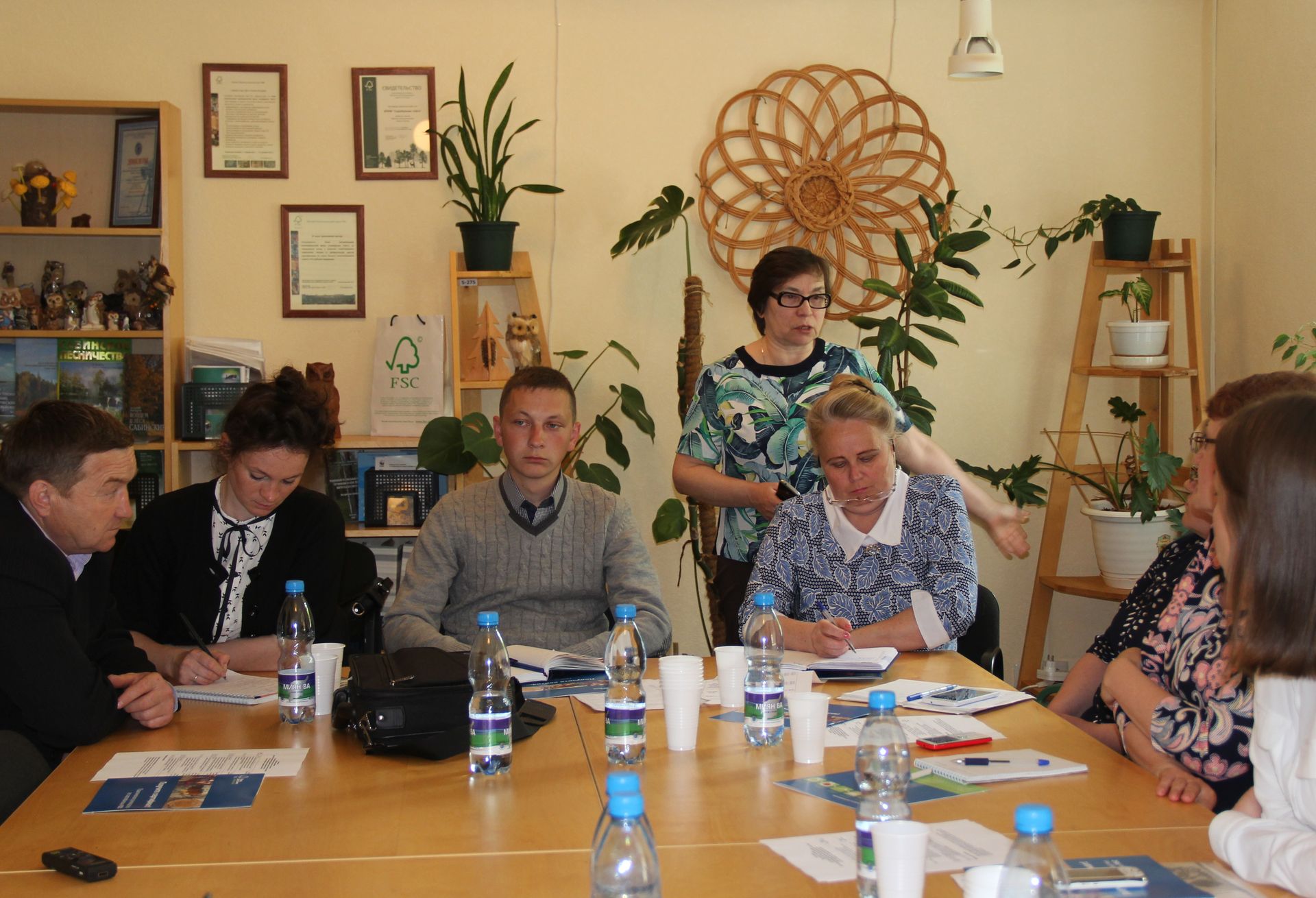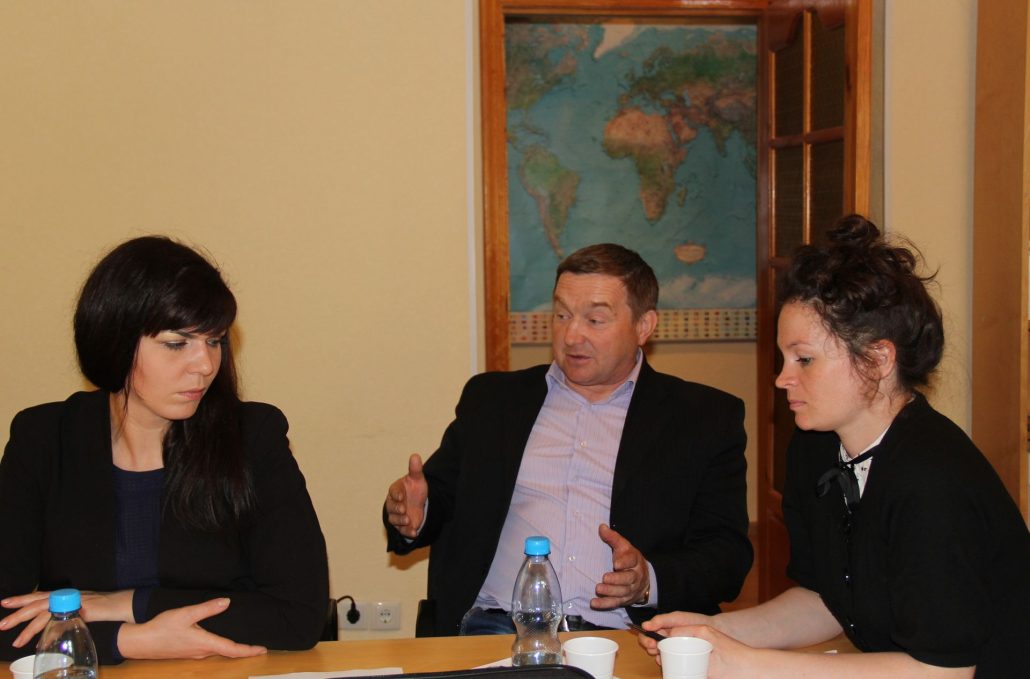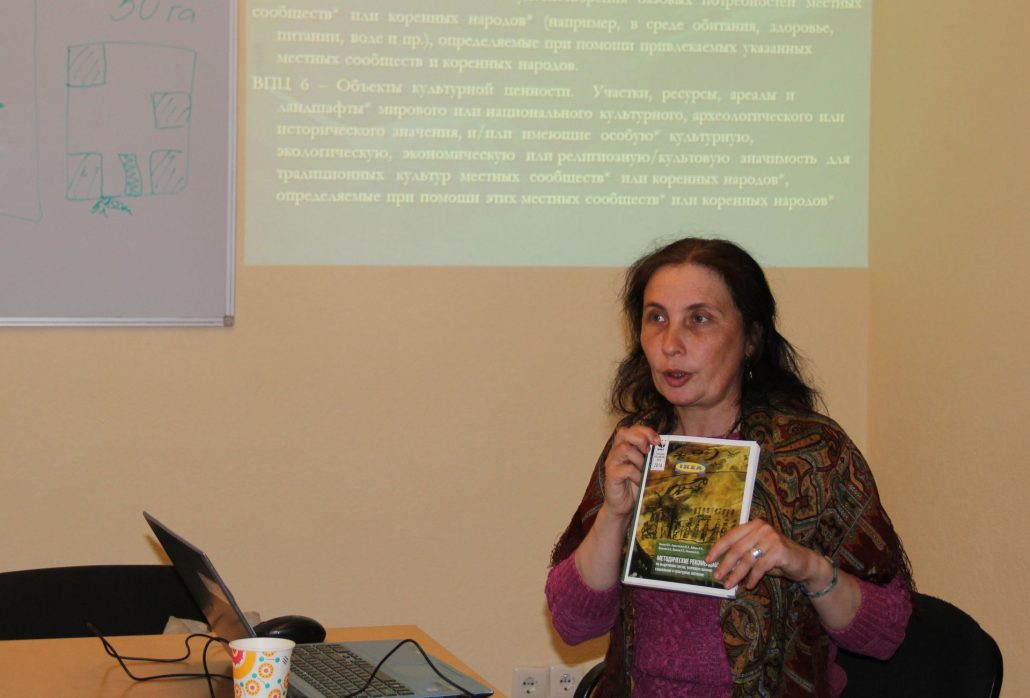About Forest Certification – to the Heads of the Rural Settlements
Silver Taiga representatives conducted a training workshop on the voluntary forest FSC- certification for the heads of the rural settlements from Syktyvdin district of Komi on June 15.
What is the sustainable forestry and forest use? Why is the forest management certification a way to the sustainable forest management? How do the logging companies follow the social FSC requirements and what depends on the local communities and self-government? All these and other questions were answered to the workshop participants from Sludka, Mandach, Vylgort, Yb, Zelenets, Ozel and Shoshka villages.
There are several dozens of logging companies operating in Syktyvdin district of Komi. Among them are large companies including FSC-certified ones (Mondi Syktyvkar, SevLesPil ltd., North-West Forest Terminal ltd.), non-certified companies and individual entrepreneurs. There are many problems that the local people face because of the logging companies activities. First of all the condition of roads for general use leaves much to be desired as the roads suffer a lot of pressure from the logging trucks.
As it turned out during the workshop not all FSC-certified companies acting in the district fulfil the social requirements of the Standard. For example, only Mondi Syktyvkar inform the local administration about its plans of activities.
How do the FSC-certified companies cooperate with the local communities, what are the ways of the local people interests consideration, how are the FSC requirements concerning the indigenous people fulfilled, what is HCVF and how are the social HCVFs defined, do the local people take part in working out of the social partnership agreement with the logging companies – all these issues were discussed during the workshop.
Silver Taiga is going to continue such workshops on the FSC-certification social issues for the interested local people in the hope that they contribute to the development of the forest business social responsibility with respect to the local population.




